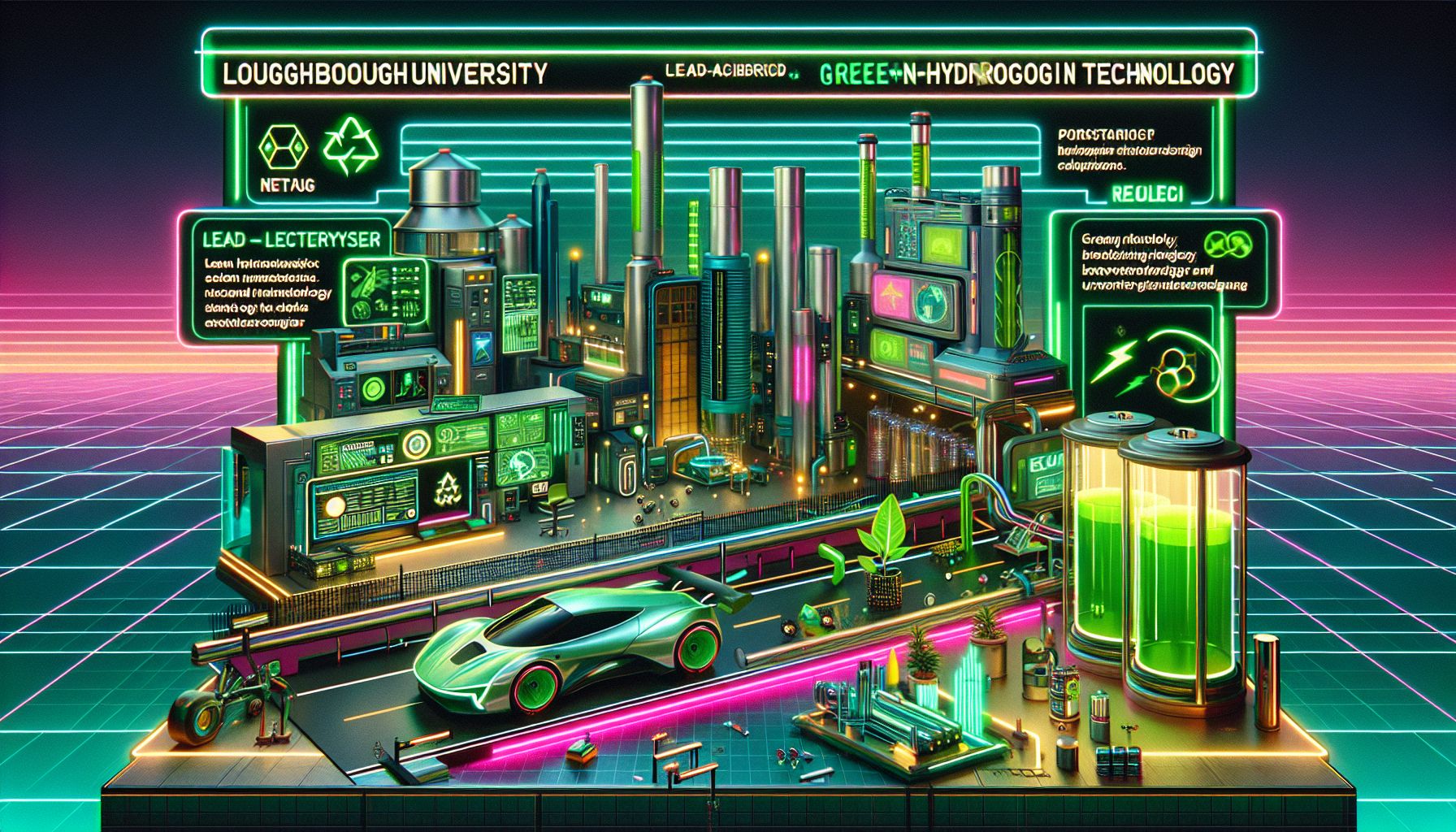Loughborough's Green Hydrogen Innovation Takes Centre Stage

Loughborough, Tuesday, 18 February 2025.
Loughborough University and EnerHy are spotlighting revolutionary green hydrogen tech at the Festival of Tomorrow. From car races to the world’s first lead-acid battery-electrolyser, innovation’s charging towards a greener future!
Pioneering Sustainable Energy Solutions
I’m excited to share how we’re revolutionizing green energy right here at Loughborough! Our team, along with EnerHy, is showcasing groundbreaking green hydrogen technology at the Festival of Tomorrow, running from February 12-23, 2025 in Swindon [1]. The highlight that’s got everyone talking is our world’s first full-scale lead-acid battery-electrolyser cell for sustainable hydrogen production [1][7]. This innovation comes at a crucial time, as Britain recently closed its last coal-fired power station at Ratcliffe-on-Soar in September 2024 [6], marking a definitive shift towards cleaner energy solutions.
Interactive Learning and Innovation
What makes this showcase special is how we’re making complex technology accessible to everyone. On February 20th at the Steam Museum, and during the grand finale on February 21-22 at the Deanery Academy [1][7], visitors can participate in exciting activities like our model hydrogen car race [1]. As Professor Dan Parsons, our Pro Vice Chancellor, puts it: ‘Engaging the public with our research is crucial for fostering understanding and support for the transition to a Net Zero future’ [1].
Building a Hydrogen Valley
This event is particularly significant for our region’s future. The East Midlands is positioning itself as a ‘hydrogen valley’ [6], with companies like Intelligent Energy leading the charge in fuel cell technology. However, as Greg Harris, Chief Commercial Officer at Intelligent Energy, notes: ‘There are three obstacles to the maturation of a hydrogen economy in the region: the cost of hydrogen itself, lack of infrastructure, and capital expenditure required for fuel cell systems’ [6]. That’s exactly why our research and public engagement initiatives are so crucial.
Collaborative Future
The festival represents a powerful collaboration between academia and industry. Working alongside partners including Cranfield University, the University of Strathclyde, and major industry players like BOC, Cadent, ESB, and JLR [1], we’re training the next generation of leaders in the hydrogen economy [1]. Professor Sandie Dann shares my enthusiasm: ‘We are delighted to be returning to the Festival of Tomorrow for a second consecutive year’ [1], highlighting our commitment to making sustainable energy solutions a reality.